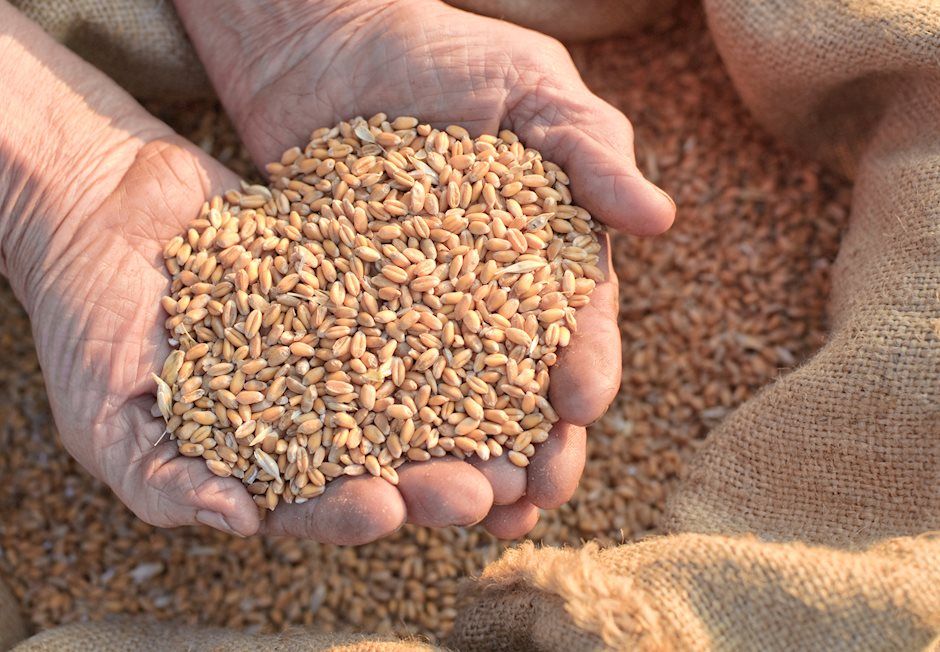Why wheat is a commodity that deserves investor attention during

Original content: Could investors find an opportunity for growth by investing in wheat stocks?
The ongoing geopolitical tensions surrounding Russia have made international stock markets difficult for investors to navigate. They’ve also paved the way for new investment opportunities due to the strength of sanctions and import bans imposed on the nation. One of the most significant commodities impacted by bans on Russian imports is wheat. Could investors find an opportunity for growth by investing in wheat stocks?
“Ukraine and the Russian Federation account for a third of the world's exports, which will not reach the market in its entirety,” said Maxim Manturov, head of investment advice at Freedom Finance Europe. “There are also risks of fewer crops due to lack of fertilizers and military action. This will push up the price of other food commodities such as sugar, corn and soybeans.”
As the conflict continues, this renders a huge volume of the world’s wheat inaccessible, with greater pressure set to be placed on other wheat suppliers around the world to make up for the supply shortage. The price of wheat to buy will also be liable to change as the risk of shortages intensifies.
Identifying wheat stocks to buy
Should Russia’s war in Ukraine continue over a sustained period, it would likely see wheat become a key commodity for investors to track in a similar manner to oil. This opens the door for investment opportunities in a number of stocks that cater to the wheat industry.
For instance, firms like The Andersons (NASDAQ: ANDE), and John Deere (NYSE: DE) could both be options for investors to consider.
As we can see with Andersons, the company’s stock has grown 31.65% since the beginning of the year. The company also reported record adjusted pretax income in its recent quarterly update, bolstered by strong execution across its 2021 harvest and an emphasis on clean energy.
John Deere also climbed 25% since the beginning of the year on the New York Stock Exchange before a correction took effect. John Deere can be a promising option for investors, particularly after the company acquired full ownership of three joint venture factories from prior collaborations with Hitachi.
As we can see from the performance of another wheat-based stock, there are plenty of more companies that investors can buy which could take better advantage of the current market volatility surrounding the commodity.
Whilst the likes of Andersons and John Deere represent more cautious plays on Wall Street, the likes of Archer-Daniels-Midland Co (NYSE: ADM), and Bunge Ltd (NYSE: BG) have already accumulated 34% and 24% in 2022 alone, and although the stocks have undergone a correction in recent weeks, the ongoing conflict is likely to lead to greater industry demand for wheat from the west.
Building a diversified portfolio around wheat and agriculture
Due to the unpredictability of the factors impacting Wall Street today, investors may find that it’s worth buying into exchange-traded funds (ETFs), which can spread investment across multiple stocks to protect against underperformance.
Currently, the only solely wheat-oriented ETF is the Teucrium Wheat Fund (NYSEArca: WEAT). As its performance to date shows, the fund has rallied significantly in recent weeks, turning in 46.5% growth in 2022.
For investors who are wary about relying solely on wheat, there are many more agriculturally focused ETFs available as a means of hedging against a swift resolution to Russia’s conflict in Ukraine and a return to normal levels of supply for the world’s wheat.
ETFs like the Invesco DB Agriculture Fund (NYSEArca: DBA) and the iPath Bloomberg Grains SubTR ETN (NYSEArca: JJG) can both be strong options when it comes to incorporating more diversification into your portfolios.
Investing in grain futures
Another option that can be explored by investors is buying into grain futures. This enables individuals to bet that the value of grain stocks will increase over a specific period of time. However, it’s important to note that this form of investment comes with a significant risk of loss and that the approach certainly isn’t for everyone.
For instance, an investor may be liable to lose more than they initially invested, meaning that only risk capital should be used. This refers to the amount of money that an investor can accord to invest without it negatively impacting their comfort.
In a nutshell, a grain futures contract is a legally binding agreement for the delivery of grain in the future at a pre-agreed price. The contracts are ratified by a futures exchange regarding quantity, quality, time, and place of delivery - with the price remaining the only variable involved.
Considering the volatility of the market surrounding grain, it may be worth investors taking a more measured approach to the commodity in the short term. However, with two leading nations in the production of wheat embroiled in a major conflict, we can expect much more price action surrounding grain in the foreseeable future.
Author

Dmytro Spilka
Solvid
Dmytro is a tech, blockchain and crypto writer based in London. Founder and CEO at Solvid. Founder of Pridicto, an AI-powered web analytics SaaS.








